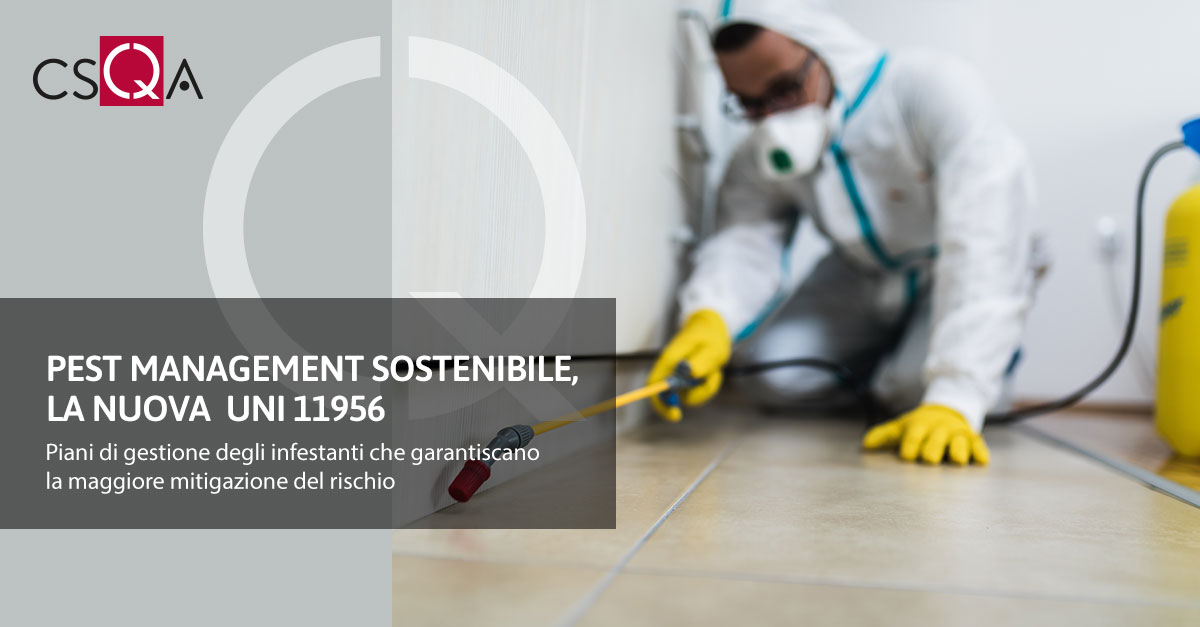 UNI has published the UNI 11956:2024 standard “Sustainable pest management and control services – Requirements”.
UNI has published the UNI 11956:2024 standard “Sustainable pest management and control services – Requirements”.SCENARIO
Organizations today are increasingly committed to undertaking a path of sustainability with the aim of achieving constant and growing environmental, social and economic well-being over time. This concept applies to many areas including pest management services.
Sustainable pest management is concerned with designing and delivering pest management plans that ensure the greatest risk mitigation with the minimum reduction of environmental, social and economic impacts.
Only through the correct risk assessment can there be sustainable pest management; as has happened in other sectors, such as agriculture, also in the sector of commodity and urban disinfestation the introduction of objective concepts and elements to define if and how to intervene becomes fundamental.
Introducing elements of objectivity in the risk assessment , as well as in the subsequent planning and execution phases of the interventions, allows us to clearly define how to operate.
In this way, the foundation is laid to advance the culture of sustainability in a transparent way within this sector which plays an important role in the health and safety of people, the environment and the product.
The activities in which these services are involved include the healthiness of the food we eat, the safety of civil and working places, the health and well-being of humans and animals, and the fight against vectors of infectious diseases .
THE NORM
The UNI 11956:2024 standard aims to encourage the activation of sustainable paths in the field of pest management to improve and make organizations in the sector increasingly professional and competitive.
It therefore defines the requirements for the provision of such services applicable by organizations in the sector and the entire supply chain.
The path towards a sustainable business model is a long-term project in which communication also becomes a great opportunity and a challenge for the organization.
Communicating sustainability transparently means providing certain and reliable data and information.
The objectives of Agenda 2030 inevitably also involve the pest control sector.
In fact, UNI 11956 indicates the criteria to be followed in the management of the processes indicated in the standard in compliance with the sustainable development objectives.
The following normative references are reported within UNI 11956:
UNI EN 16636 Pest management services – Requirements and competences;
UNI CEI EN ISO/IEC 17065 Conformity assessment – Requirements for bodies certifying products, processes and services.
(Source: https://www.uni.com/ )